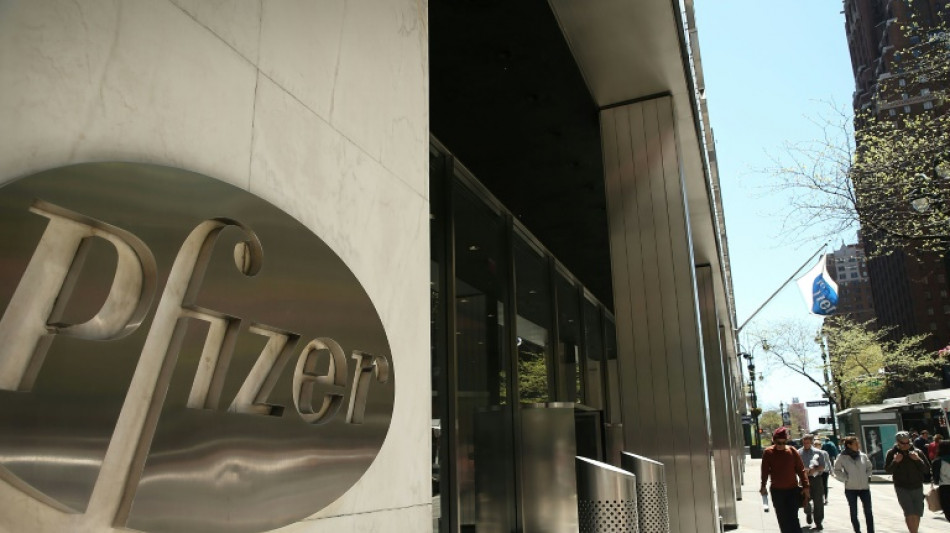
-
 Scandic Trust Group strengthens sales network with First Idea Consultant
Scandic Trust Group strengthens sales network with First Idea Consultant
-
Germany recall Sane, hand El Mala debut for World Cup qualifers

-
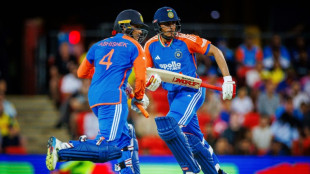 India thump Australia to take 2-1 lead in T20 series
India thump Australia to take 2-1 lead in T20 series
-
Cameroon's Biya, world's oldest president, sworn in for 8th term

-
 Flick holding firm on Barca high line despite defensive woes
Flick holding firm on Barca high line despite defensive woes
-
Battered US businesses eye improved China trade at Shanghai expo

-
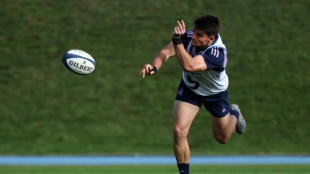 France opt for Le Garrec as Dupont replacement for 'best team ever' South Africa
France opt for Le Garrec as Dupont replacement for 'best team ever' South Africa
-
Drugmaker AstraZeneca profit jumps as US business grows
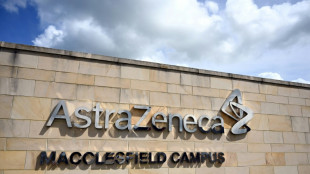
-
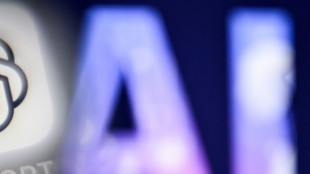 'Vibe coding' named word of the year by Collins dictionary
'Vibe coding' named word of the year by Collins dictionary
-
Vietnam evacuates thousands from coast ahead of Typhoon Kalmaegi

-
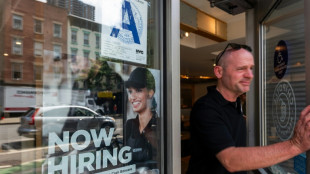 European stocks fall after gains in Asia, US
European stocks fall after gains in Asia, US
-
MotoGP legend Agostini admires Marc Marquez's 'desire to win'

-
 Nepal searches for avalanche victims
Nepal searches for avalanche victims
-
Hezbollah rejects any negotiations between Lebanon and Israel

-
 Chapman blitz leads Black Caps to tight T20 victory over West Indies
Chapman blitz leads Black Caps to tight T20 victory over West Indies
-
France urges EU to sanction Shein platform
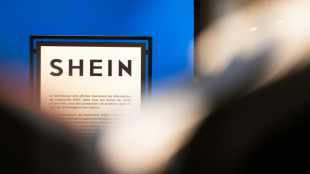
-
 France opt for Le Garrec as Dupont replacement for South Africa Test
France opt for Le Garrec as Dupont replacement for South Africa Test
-
Turmoil in tiaras at Miss Universe pageant in Thailand

-
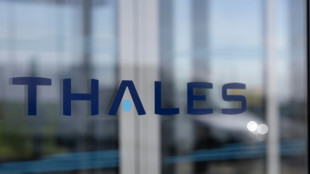 Probe into Thales defence group looking at Indonesian contract
Probe into Thales defence group looking at Indonesian contract
-
US to cancel flights as longest govt shutdown drags on

-
 Home in Nigeria, ex-refugees find themselves in a war zone
Home in Nigeria, ex-refugees find themselves in a war zone
-
Doncic's Lakers hold off Wembanyama's Spurs, Blazers silence Thunder

-
 For Turkey's LGBTQ community, draft law sparks existential alarm
For Turkey's LGBTQ community, draft law sparks existential alarm
-
Musk's $1 trillion pay package to face Tesla shareholder vote
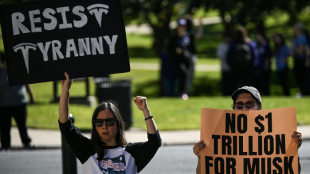
-
 Tonga rugby league star out of intensive care after seizure
Tonga rugby league star out of intensive care after seizure
-
Argentine ex-president Kirchner goes on trial in new corruption case

-
 Dams, housing, pensions: Franco disinformation flourishes online
Dams, housing, pensions: Franco disinformation flourishes online
-
Endo returns as Japan look to build on Brazil win

-
 Franco captivates young Spaniards 50 years after death
Franco captivates young Spaniards 50 years after death
-
German steel industry girds for uncertain future

-
 IPL champions Bengaluru could be sold for 'as much as $2 billion'
IPL champions Bengaluru could be sold for 'as much as $2 billion'
-
Budget impasse threatens Belgium's ruling coalition

-
 New Zealand ex-top cop admits to having material showing child abuse, bestiality
New Zealand ex-top cop admits to having material showing child abuse, bestiality
-
BoE set for finely balanced pre-budget rate call

-
 Australian kingpin obtains shorter sentence over drug charge
Australian kingpin obtains shorter sentence over drug charge
-
Weatherald's unenviable Ashes task: fill giant hole at top left by Warner

-
 Ovechkin first to score 900 NHL goals as Capitals beat Blues
Ovechkin first to score 900 NHL goals as Capitals beat Blues
-
On Mexico City's streets, vendors fight to make it to World Cup
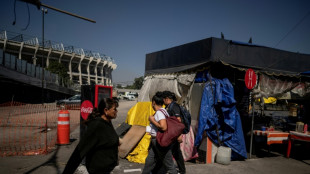
-
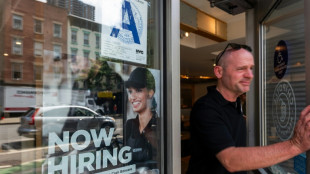 Asian markets bounce from selloff as US jobs beat forecasts
Asian markets bounce from selloff as US jobs beat forecasts
-
Philippine death toll tops 140 as typhoon heads towards Vietnam

-
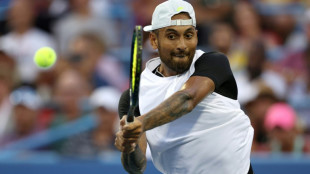 Kyrgios targets 'miracle' Australian Open return after knee improves
Kyrgios targets 'miracle' Australian Open return after knee improves
-
'AI president': Trump deepfakes glorify himself, trash rivals

-
 Belgium probes drone sightings after flights halted overnight
Belgium probes drone sightings after flights halted overnight
-
Five things to know about 'forest COP' host city Belem
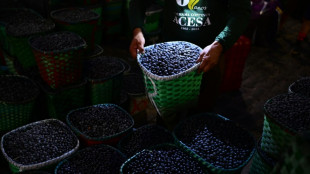
-
 World leaders to rally climate fight ahead of Amazon summit
World leaders to rally climate fight ahead of Amazon summit
-
Engine fell off US cargo plane before deadly crash: officials

-
 Mexican leader calls for tougher sexual harassment laws after attack
Mexican leader calls for tougher sexual harassment laws after attack
-
Meghan Markle set for big screen return: reports

-
 Japan deploys troops after wave of deadly bear attacks
Japan deploys troops after wave of deadly bear attacks
-
FIFA announce new peace prize to be awarded at World Cup draw in Washington


US approves maternal vaccine to prevent RSV in infants
The United States on Monday became the first country to approve a vaccine for pregnant women that prevents severe disease caused by Respiratory Syncytial Virus (RSV) in their babies.
The Pfizer shot, which was already approved for use in older adults, has now been greenlighted for use as a single injection from 32 through 36 weeks of pregnancy, to protect infants from birth through six months, a statement by the Food and Drug Administration said.
It is the latest in a succession of medicines recently approved against the common microbe, which causes tens of thousands of hospitalizations among infants and the elderly in the United States every year, according to official estimates.
Researchers have targeted an RSV vaccine since the 1960s, but the spate of shots that are emerging now were made possible thanks to a scientific breakthrough a decade ago.
"RSV is a common cause of illness in children, and infants are among those at highest risk for severe disease, which can lead to hospitalization," said Peter Marks, director of the FDA's Center for Biologics Evaluation and Research.
"This approval provides an option for healthcare providers and pregnant individuals to protect infants from this potentially life-threatening disease."
The approval follows a clinical trial involving some 7,000 pregnant women, which showed Pfizer's vaccine, called Abrysvo, reduced severe disease caused by RSV by 82 percent in babies from 0-3 months, and 69 percent from 0-6 months.
Abrysvo was previously approved by the FDA for adults aged 60 and over, as was another vaccine by drugmaker GSK, called Arexvy.
While RSV most often causes mild, cold-like symptoms in infants and young children, it can also lead to more serious outcomes such as pneumonia and bronchiolitis.
An estimated 58,000-80,000 children younger than five years are hospitalized due to RSV infection, according to the Centers for Disease Control, making it the leading cause of hospitalization among infants.
Commonly reported side effects by pregnant patients who received Abrysvo included pain at the injection site, headache, muscle pain and nausea.
A dangerous blood pressure disorder, known as pre-eclampsia, occurred in 1.8 percent of pregnant individuals who received Abrysvo compared to 1.4 percent of those on a placebo.
The FDA further noted an imbalance in preterm births between the group who received the vaccine versus the placebo (5.7 percent against 4.7 percent), but said the sample size was small and the topic merited further study.
It has therefore required Pfizer to continue studying the risk of preterm birth and pre-eclampsia.
Following FDA approval, a product must receive clearance from the CDC which will offer recommendations on how best to use it, meaning it's not clear whether it will be available in time for RSV season this fall and winter.
Parents can look to another medicine, however.
Earlier this month, regulators approved an antibody treatment called Beyfortus, developed by Sanofi and AstraZeneca, as a preventative treatment that works like a vaccine to protect babies and toddlers.
Y.Bouchard--BTB




